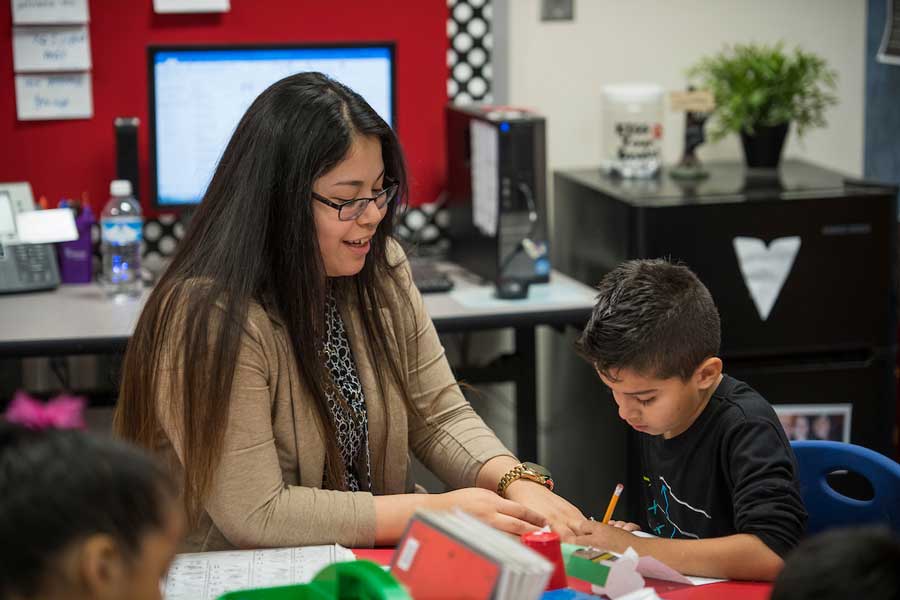Study shows benefits of Spanish-language literacy program

Dec. 5, 2019 — DENTON — Citing the growing number of Latino English learners and the lack of evidence-based educational opportunities they are provided, evaluators with the American Institutes of Research (AIR) teamed with the Texas Woman’s University Reading Recovery program for a randomized controlled study of Descubriendo la Lectura (DLL), a literacy program for bilingual first-graders who are having difficulty learning to read and write in their native Spanish.
The study examined the program’s effects on both Spanish and English literacy. The first-year results show that DLL “demonstrates a clear benefit to students across many dimensions of literacy.”
Annette Torres Elías, Ph.D., associate professor and DLL trainer at Texas Woman’s, said the evaluators approached the university’s program about the study, noting that some of the researchers had been involved in a prior study that found Reading Recovery to be highly effective. Reading Recovery is a short-term early intervention designed for first-graders who have difficulty learning to read and write; Descubriendo la Lectura is the reconstruction of Reading Recovery in Spanish. The Reading Recovery training center at Texas Woman’s is one of only 18 centers in the nation, one of only two that trains faculty, and the only one in the world that offers training in Spanish.
Torres Elías said the latest study is a randomized controlled trial conducted at multiple sites, which is “as good as it gets in research.” The first cohort sample included 152 DLL-eligible first-grade students from three states. The students were randomly assigned to receive DLL services — in which children meet individually with a specially trained teacher for 30 minutes a day for 12 to 20 weeks — either at the start of the school year (the immediate group) or later in the school year (delayed group). The latter group served as the control group. All students were pretested and post-tested using the Instrumento de Observación (IdO), which is routinely used in DLL to assess literacy, as well as the Iowa Test of Basic Skills (ITBS) assessment and its Spanish equivalent, Logramos.
Results showed that students who received DLL services (the immediate group) outperformed students in the control group on all 11 Spanish assessments, and the differences were statistically significant. Results of the English-language assessments were positive, though not statistically significant.
AIR will present the results for all three cohorts at the American Education Research Association’s 2020 Annual Meeting, scheduled April 17-21 in San Francisco.
The study cites the DLL program’s “well-specified guidelines and practices, and ongoing oversight, support, and training by teacher leaders and university-based trainers” as its strengths.
“It’s good when someone else acknowledges the hard work of our teachers,” Torres Elías said
Researchers will follow the first cohort to the third grade to determine whether the students are sustaining their gains.
The Texas Woman’s University Reading Recovery program’s six-state network includes Texas, Oklahoma, Louisiana, Colorado, Washington and Wyoming, with teachers in more than 40 school districts and 200 schools. The program has contributed to training more than 200 teacher leaders and more than 35,000 Reading Recovery teachers, resulting in 258,000 students receiving the Reading Recovery intervention. For more information, visit the Reading Recovery website.
Media Contact
Karen Garcia
Communication Specialist
940-898-3472
kgarcia@twu.edu
Page last updated 9:53 AM, October 25, 2021